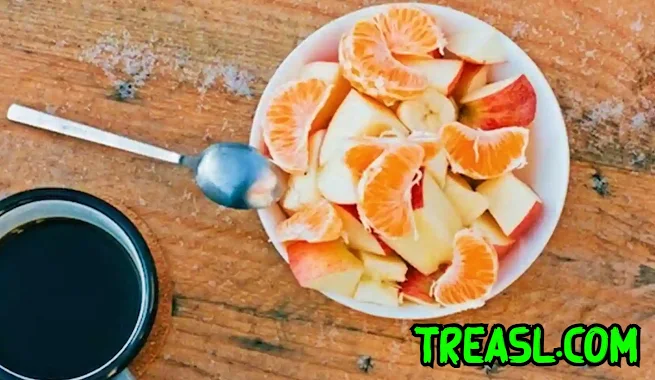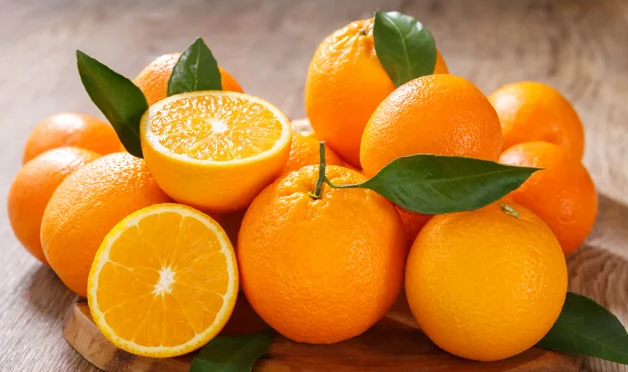Persimmon season is here! Before they disappear, stock up on these 6 nutritious winter fruits. Fruit that is sweet and delectable is in season!
If you seek it, the chilly and sometimes gloomy winter months offer a positive side: the fresh fruits that are in season and frequently discounted at this time of year!
Even while your summer may be filled with fruit salads and fresh berries, if you look closely, you'll see that there is a wide range of fruit that is at its freshest in the winter. In addition to tasting best when consumed in season, winter vegetables such as persimmons may only be available at your local grocery store for a few months of the year.
While some of these fruits may be year-round producers in some remote regions, extended transportation delays sometimes result in pricey and subpar produce when consumed out of season.
When it comes to staying healthy during winter, snacking on fruit may boost your immune system, improve your fibre intake, and fill your body with disease-fighting antioxidants.
Enjoy these 6 nutritious winter fruits before they go out of season.
1) Oranges
Oranges are available all year long at your local store, but when the season is at its best in the winter, nothing compares to the fresh, sweet flavour of oranges. The most precious citrus fruits include oranges, clementines, and tangerines, frequently discounted throughout the winter.
Oranges are famous for supplying more than 100% of your daily vitamin C requirements, but that isn't their only benefit. Oranges contain the flavonoid hesperidin, which lowers blood pressure and has anti-inflammatory properties. In a research published in the European Journal of Nutrition in July 2020, participants with pre- and stage-1 high blood pressure who drank two cups of orange juice per day for 12 weeks had a decrease in systolic and pulse pressure.
2) Cranberries
Cranberries are the ideal holiday fruit since they are in season from October through December, conjuring up images of Thanksgiving feasts and Christmas garlands.
These berries are renowned for assisting in the prevention of urinary tract infections (UTIs). According to several clinical trials, adult women who frequently have UTIs can reduce their incidence by consuming cranberry juice or taking cranberry supplements. However, several studies have also discovered a weak relationship between the two.
3) Persimmons
Although it originated in China, this fruit is currently produced all over the world, with a tiny crop occurring each winter in California. From October through December, you can find it in profusion on the west coast and in the supermarket's "strange fruit" department everywhere else in the country.
Persimmons are a popular winter superfood since they provide just 31 calories and 18% of your daily requirement of vitamin C in one fruit (without the peel). Unripe persimmons have a terrible and harsh flavour, but when they are mature, they are sweet and have a nearly jelly-like texture.
The two varieties of pears that are most frequently seen in stores year-round are Anjou and Bartlett, however certain pears are only available from October through February. With 5.5 grams of fibre per medium pear, pears are excellent for your gut and heart health. For every 1,000 calories consumed, the 2020–2025 Dietary Guidelines for Americans recommend 14 grams of fibre. 20% of the fibre needed for a diet of 2,000 calories is contained in pears.
4) Pears
The two varieties of pears that are most frequently seen in stores year-round are Anjou and Bartlett, however certain pears are only available from October through February. With 5.5 grams of fibre per medium pear, pears are excellent for your gut and heart health. For every 1,000 calories consumed, the 2020–2025 Dietary Guidelines for Americans recommend 14 grams of fibre. 20% of the fibre needed for a diet of 2,000 calories is contained in pears.
5) Pomegranates
Because of the state's warm and dry environment, California produces around 90% of the pomegranates cultivated in the United States. This fruit is a favourite winter fruit since its primary season lasts from October to January. There are a lot of juicy red arils with a sweet flavour and antioxidants when you remove the hard outer shell.
Pomegranate juice has more antioxidant potential than red wine or green tea, two beverages recognized for their high antioxidant concentration, according to research. In a tiny clinical trial, persons with type 2 diabetes and high cholesterol levels who drank concentrated pomegranate juice every day for eight weeks had substantial reductions in their levels of total cholesterol and LDL cholesterol.
6) Grapefruit
Despite being cultivated in California and Texas, Florida is the country's top producer of this sweet, tart, juicy fruit. Late fall through early spring is when it is at its busiest. While many people consume this fruit raw (sometimes with a teaspoon of sugar on top), grapefruit may also be grilled, broiled, and juiced to be used in several cuisines.
98% of your daily value for vitamin C and 79% of your daily value for vitamin A are both present in one medium grapefruit. Be cautious of the negative effects of grapefruit and its juice if you use blood-thinning medicine, even though this winter fruit is very healthy.







